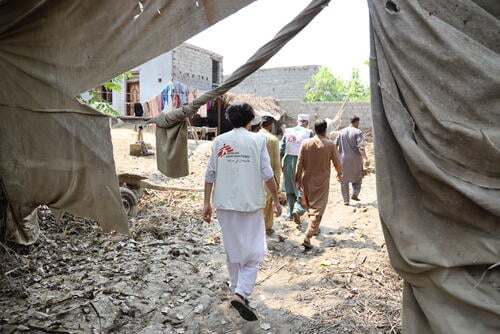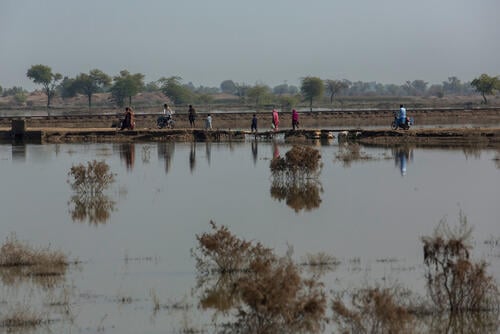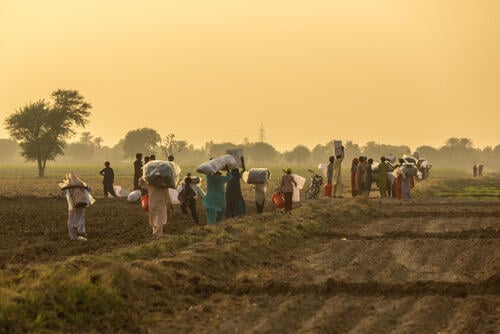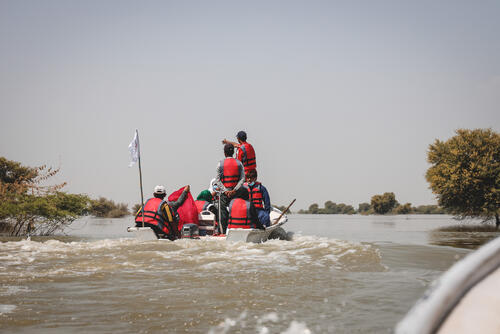More than one-third of Pakistan is under water because of heavy monsoon rains which began in June and culminated in destructive floods at the end of August. Now, the death toll is over 1,500 and it is thought that over 33 million people have been affected. It is suspected that it could take months for the floodwaters to recede.
Many people have lost their homes and have no access to food, shelter, or clean drinking water. Some people have been so hard to reach because of floodwaters, they did not receive assistance for weeks.
Médecins Sans Frontières (MSF) teams are on the ground in Pakistan, providing emergency support to those affected by the flooding.
How we're responding in Pakistan
Our teams are responding to the floods in the provinces of Sindh, Balochistan, and Khyber Pakhtunkhuwa. We're providing consultations through mobile clinics to people who are sheltering in camps, as well as people who have been made hard-to-reach because of floodwaters. Our medical teams have treated people for skin diseases, diarrhoea, malaria, eye infections, and more. In Punjab province, we conducted a needs assessment and plan to launch an emergency response.
Water and sanitation needs are great, with people unable to access safe drinking water. Throughout the country we have provided over 300,000 litres of clean drinking water and this number will grow as our water and sanitation teams continue their lifesaving work.
10,000
10,
5,000
5,
300,000
300,
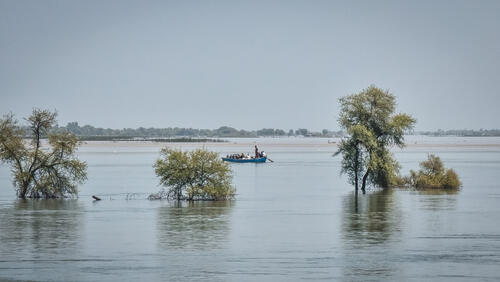
Response in Sindh province
In Dadu district, our teams have been operating two mobile clinics that have been treating people with skin diseases, malaria, and diarrhoea. So far, we have seen over 1,500 people with these mobile clinics. We have also had to use boats to assess the needs of remote villages that have been cut off from assistance because of the floodwaters. At different camps in Dadu district we have provided over 20,000 litres of clean drinking water per day.
In the north of Sindh province, assessments are being done in Sukkur city, and MSF’s water and sanitation teams have already started providing clean drinking water. We have installed water tanks with a capacity of 24,000 litres, which are being refilled daily. Over 200,000 litres of water have been provided to displaced people taking shelter in Labour Colony flats and Lab-e-Mehran camp in Sukkur district.
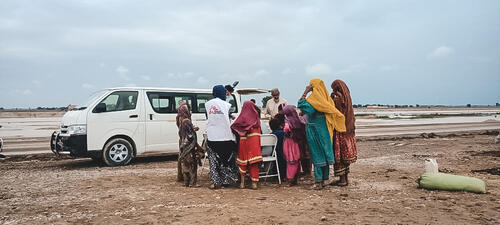
Response in Balochistan province
We also have two mobile clinics for outpatient consultation in the districts of Naseerabad and Jaffarabad. With these mobile clinics, our teams have been seeing people for malaria, fever, skin diseases, diarrhoea, and eye infections. These clinics have provided 7,000 people with medical care.
In Chaman, we have provided 450 medical consultations, and in Quetta, over 800 outpatient consultations. In these cities, we have been treating mostly respiratory infections and acute watery diarrhoea.
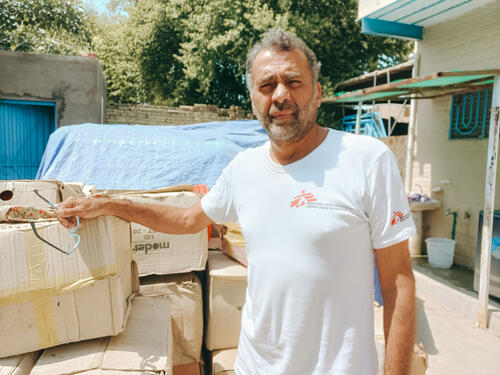
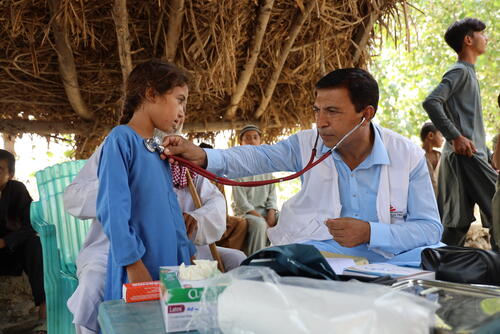
Response in Khyber Pakhtunkhuwa:
In Charsadda district, we have launched three mobile clinics in villages located next to riverbanks. The houses in these villages have been partially or completely destroyed, and villagers are now facing outbreaks of water-borne diseases.
In the last week, the medical teams have seen 983 people with respiratory tract infections, eye infections, acute diarrhoea, severe skin infections, and chronic diseases. Our teams have distributed non-food items to over 600 families in these villages.
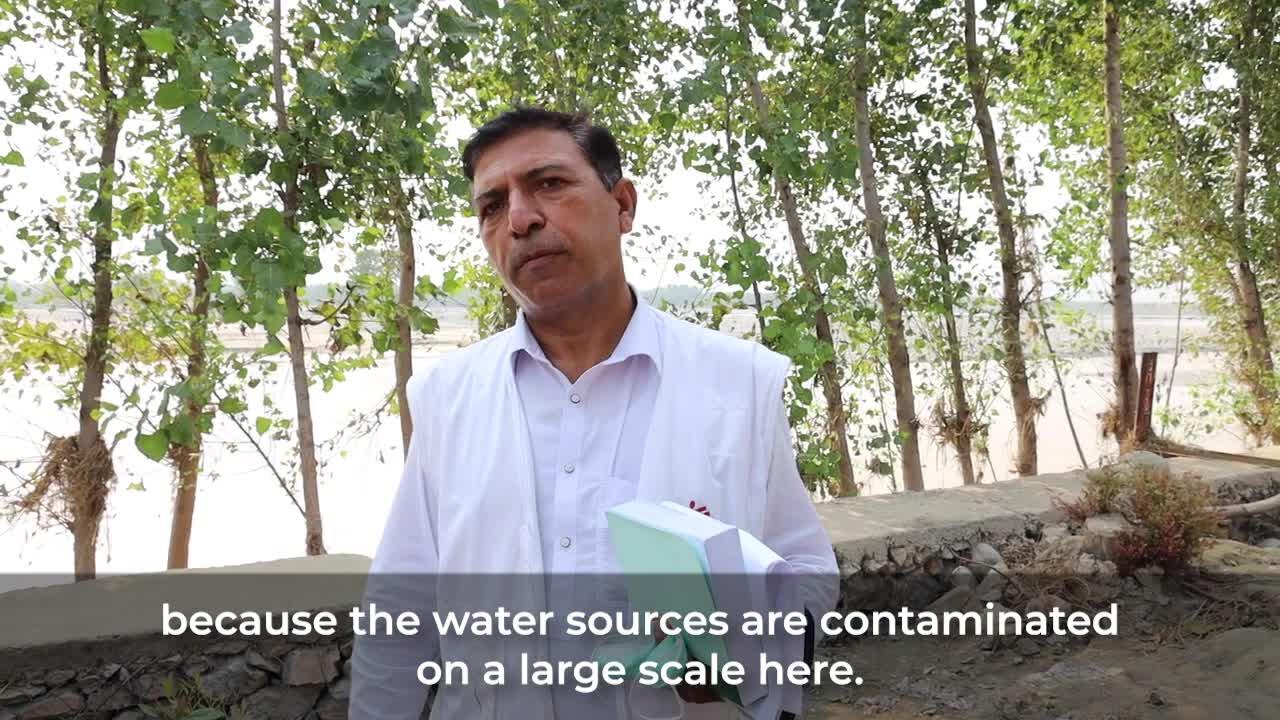
Dr Iftikhar Ahmed describes the situation at a mobile clinic in Charsadda district
Needs assessment in Punjab
Our emergency response teams have identified high needs for access to primary healthcare and the provision of safe drinking water in southern Punjab. We are looking into starting emergency response activities in Rajanpur district.



